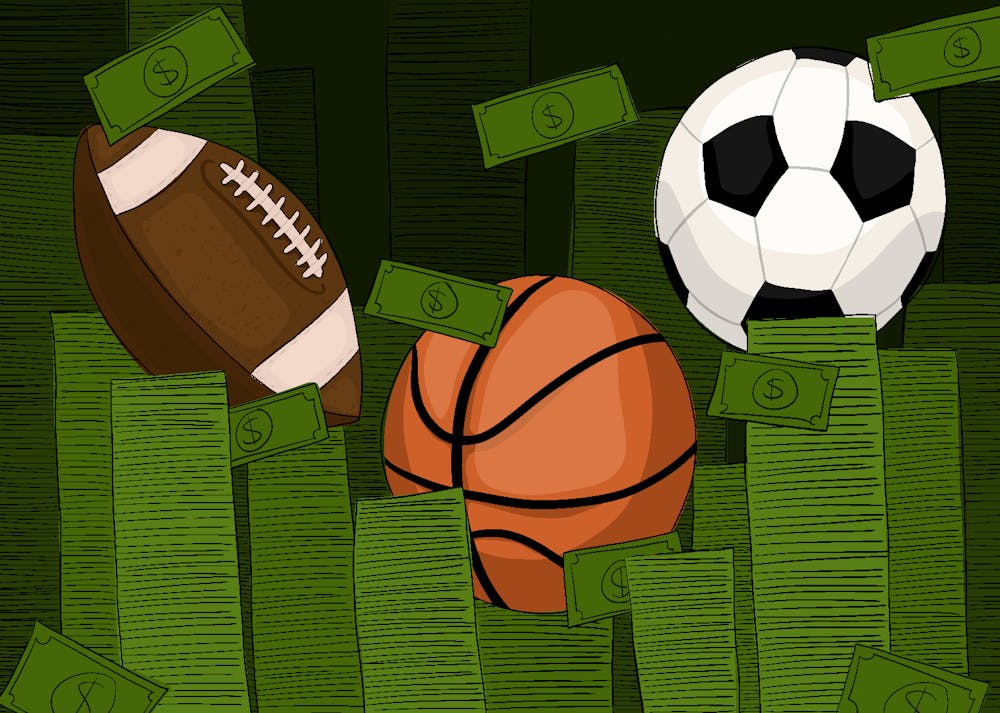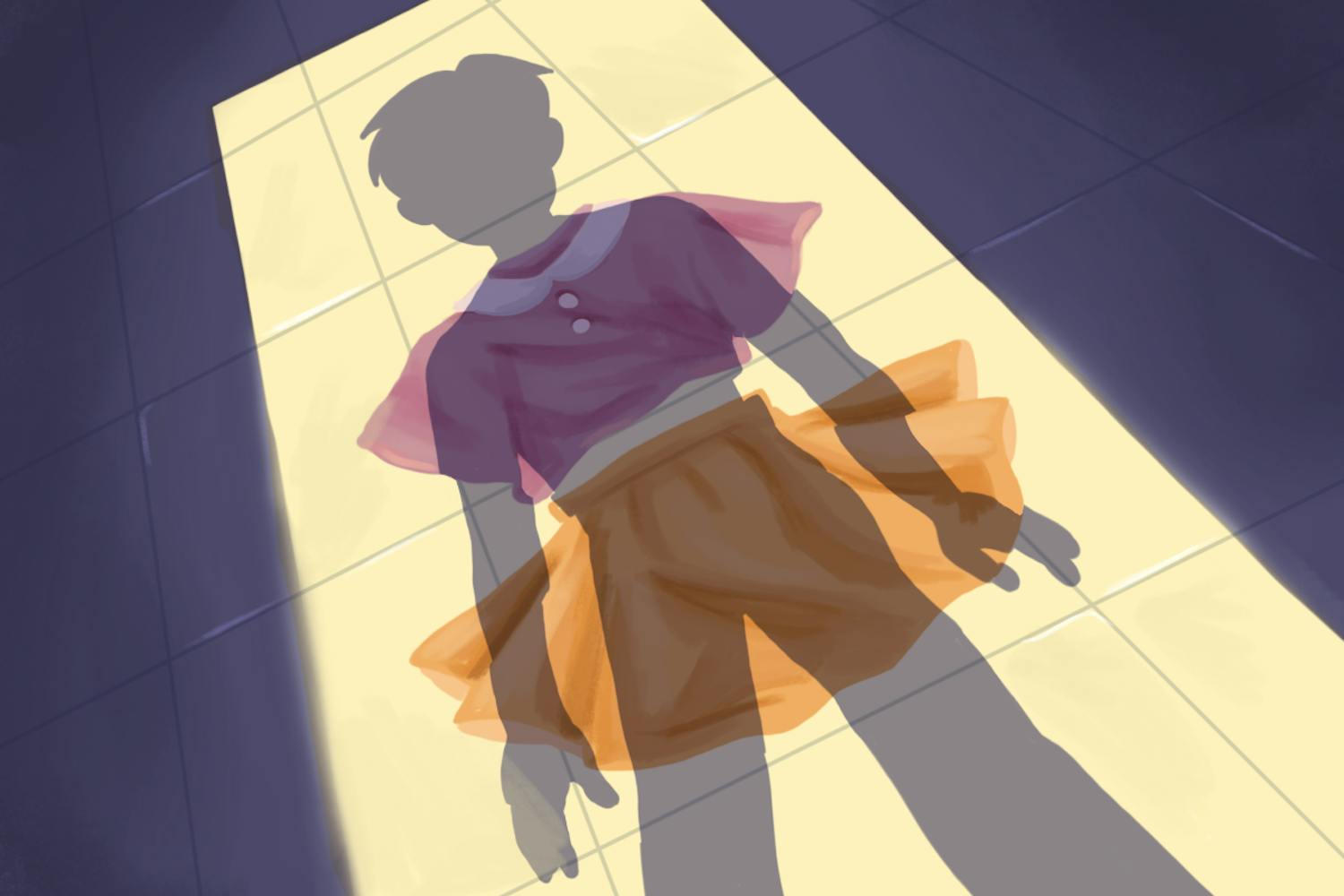An office of the National Labor Relations Board ruled that Dartmouth College men's basketball players are employees and should be paid, setting up a long fight toward paying college athletes at larger programs, such as ASU.
Regional director of the NLRB's Northeast region, Laura A. Sacks, stated in the ruling that Dartmouth compensates basketball players with equipment, tickets, lodging, meals and apparel despite not receiving academic scholarships to attend. Sacks said that everyday benefits for student athletes, like sports medicine and sports nutrition, can also be considered forms of compensation.
"Because Dartmouth has the right to control the work performed by the Dartmouth men's basketball team, and the players perform that work in exchange for compensation, I find that the petitioned-for basketball players are employees within the meaning of the Act," Sacks said in the ruling.
Last September, 15 Dartmouth players filed a petition to join the local chapter of the Service Employees International Union, which already represents Dartmouth employees. The petition led to a hearing in October and a fast response from the university.
Dartmouth quickly shut down the petition by stating that players can't be employees because they don't receive compensation. The university also said players aren't employees because the school doesn’t control them sufficiently. In her ruling, Sacks rebuked Dartmouth's claims.
"Dartmouth determines when the players will practice and play, as well as when they will review film, engage with alumni, or take part in other team-related activities," Sacks wrote in the ruling. "When the basketball team participates in away games, Dartmouth determines when and where the players will travel, eat, and sleep.
Dartmouth is expected to appeal the ruling. If so, the case would go to the full NLRB before potentially being appealed to a federal court. The national board has gone against regional rulings in the past, including in 2014 when it overturned a verdict in favor of Northwestern football players trying to be seen as employees.
"We are extremely proud of our varsity athletics program for the important values it promotes and the experience it provides for both our athletes and our broader community," a Dartmouth spokesman said in a statement, according to The Athletic. "But it's important to understand that unlike other institutions where athletics generates millions of dollars in net revenue, the costs of Dartmouth's athletics program far exceed any revenue from the program — costs that Dartmouth bears as part of our participation in the Ivy League."
While Sacks' decision only impacts Dartmouth, it may lead to ripple effects throughout college sports. A potential appeal to a federal court could mean colleges nationwide will one day be required to pay student athletes.
Steve Vondran, a copyright lawyer who heads Vondran Legal with offices in Arizona and California, said he has experience as a student athlete after playing baseball at Fresno State University and believes that Dartmouth's basketball players are in the right.
Vondran said that the NLRB ruling will allow athletes to join unions and "engage in collective bargaining" now that they are seen as "employees." Even though the decision is being appealed, Vondran said he believes the appeal will fail.
"I believe it will be upheld, mainly because a school does have the right to control the athlete and the working conditions, and they provide the tools and materials for athletes to engage in their respective sports," Vondran said in an emailed statement.
Another decision in the players' favor could force universities like ASU to pay all student-athletes. Brittani Willett, the executive director of the Sun Angel Collective, ASU's NIL affiliate, said her organization is "always keeping a pulse on what is happening" but that she believes paying athletes wouldn't be the collective's obligation.
ASU has been turning a corner on NIL over the past few months after a slow start. The Sun Angel Collective announced a "Million Dollar Match" that would match all donations up to $1 million until the spring football game.
READ MORE: Kenny Dillingham said ASU is 'turning a corner' on NIL. Here's why
Likewise, an ASU spokesperson said it is too early for the University to speculate on how it would pay its over 600 student athletes. An Arizona Board of Regents spokesperson also noted that the board is aware of the situation but has not held a public discussion.
Vondran said he knows that legal proceedings are slow and that the NLRB’s ruling lays the foundation "for the long game." He also said he believes that schools like ASU will pay student athletes in the future if Sacks' decision is kept.
"Assuming the ruling is upheld, I can easily see this having a ripple effect on other Ivy League schools and other private schools as well," Vondran said in an emailed statement. "If so, the ramifications, in my mind, will eventually extend beyond Dartmouth College to public colleges and universities nationwide, including those in major conferences such as the Big 12, the SEC and other conferences."
Edited by Walker Smith, Alysa Horton and Caera Learmonth.
Reach the reporter at jcbarron@asu.edu and follow @jackcbarron on Twitter.
Like The State Press on Facebook and follow @statepress on Twitter.
Jack is a senior studying sports journalism. This is his fourth semester with The State Press. He has also worked at Radio Sucesos and XPR Sport Experience in Argentina.




